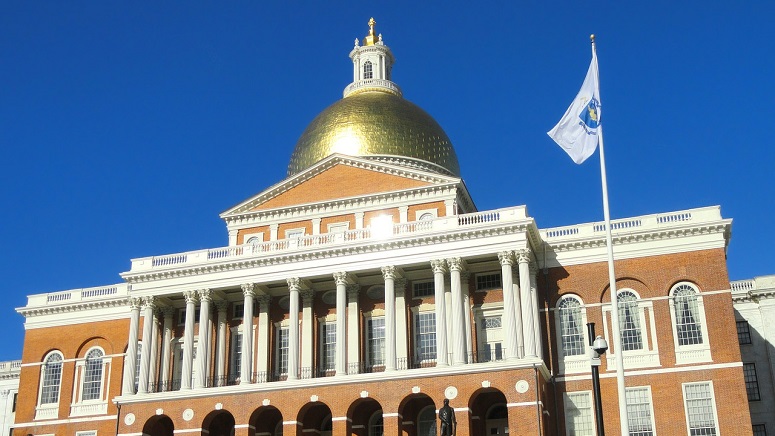A bill that would allow undocumented immigrants in Massachusetts to acquire standard driver’s licenses now sports 101 co-sponsors, just more than half of the Legislature’s 200 sitting members and an increase of 17 from last session. Another proposal to limit police interactions with federal immigration enforcement has 93 co-sponsors, down slightly from the 97 last session.
Republicans and some law enforcement officials have opposed both proposals, and legislative leaders have mostly avoided bringing either forward for a full floor vote.
Buoyed by the rising number of lawmakers on board with the licensing bill, activists with the Massachusetts Immigrant and Refugee Advocacy Coalition on Tuesday pitched it as an important public health and equity measure amid the COVID-19 pandemic.
Allowing the state’s roughly 200,000 undocumented immigrants to becomme eligible to acquire driver’s licenses, they said, will help them access critical services without facing transmission risks.
“During the COVID-19 pandemic, denying driving privilege to immigrants without status forces workers to take crowded public transportation or to share crowded rides,” Dalida Rocha, political director for 32BJ SEIU, said during a virtual advocacy day MIRA hosted. “Without the ability to drive, many immigrants outside of greater Boston can’t get tested or vaccinated. They can’t protect their families, themselves and their communities.”
The licensing bill earned vocal praise from Senate President Karen Spilka last session and cleared the Transportation Committee by a party-line 14-4 vote, but it died in the Senate Ways and Means Committee.
When bill authors unveiled the latest version of their proposal (H 3456 / S 2289) in February, they attributed its demise last session to the pandemic’s disruption.
The current version of the bill — which now features an emergency preamble explicitly citing COVID-19 — has 20 co-sponsors in the Senate and 81 in the House.
House Speaker Ronald Mariano, in his first term wielding the speaker’s gavel, gave supporters a glimmer of hope about the bill’s fate in March. “I recognize the value in bringing all drivers under the same public safety, licensing and insurance structures,” Mariano said in a statement at the time, stopping short of explicitly endorsing the proposal.
Activists also continue to push for creation of a legal firewall between local law enforcement and federal authorities such as the Immigrations and Customs Enforcement agency.
The bill (H 2418 / S 1579), which supporters dub the “Safe Communities Act,” would prohibit police and court officials from asking about someone’s immigration status unless required by law, plus bar them from notifying ICE about an individual’s pending release from custody unless the person is completing incarceration.
Rep. Ruth Balser, a Newton Democrat and an author of the legislation, said Tuesday that she hopes President Joe Biden’s first few months in office will motivate state lawmakers to “lead the way” on immigration reforms.
She, too, pitched the bill as a way to protect public health.
“The Safe Communities Act would make sure that people in the immigrant community wouldn’t have to worry about getting tested for COVID,” Balser said. “They wouldn’t have to worry to go and get their vaccination. They wouldn’t have to worry that someone’s going to talk to ICE and let them know something about themself or someone in their family. We want people to feel safe, so we want to pass a bill that says there will be no local or state involvement with federal immigration enforcement.”
“This is the session we’re going to get it done,” Balser later added.
Boston Mayor Kim Janey threw her support behind both bills Tuesday, calling the immigration enforcement restriction “critical to vaccine equity and equity in general” during MIRA’s virtual advocacy day event.
“Fear of being detained or questioned without proper consent has actually kept some of our immigrant community away from getting the life-saving vaccine, and we cannot have that happen,” Janey said.
Longtime opponents of the bill include the Massachusetts Republican Party and Bristol County Sheriff Thomas Hodgson. In January 2020, when the Public Safety Committee heard testimony on a prior version of the legislation, Hodgson said that limiting cooperation between Massachusetts police and federal authorities could create safety risks.
In 2018, the Senate voted 25-13 to adopt an amendment similar to the so-called Safe Communities Act in its fiscal year 2019 budget bill. The provision did not survive budget negotiations with the House.
The Public Safety Committee favorably reported a version of the bill in 2020 without disclosing the vote margin, but it did not advance beyond the Ways and Means Committees.
Republican Gov. Charlie Baker opposes both the enforcement and licensing bills, so Democrats would likely need to line up a two-thirds majority to overturn any prospective veto if they plan to advance the bills this session.
(Copyright (c) 2024 State House News Service.

